Your cart is currently empty!
Blog
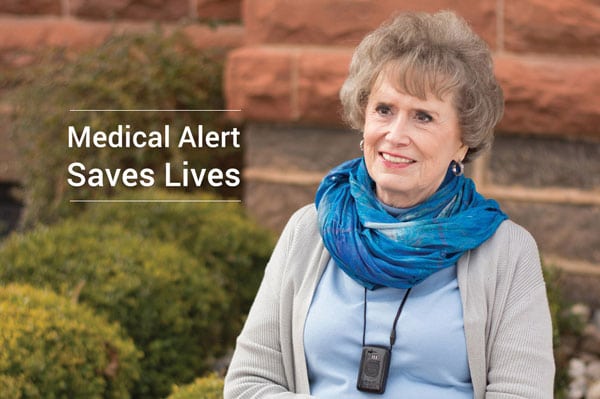
EMC Security Medical Alert Pendant Saves Another Elderly Customer!
The EMC Security monitoring center received a medical alert alarm from the pendant worn by a customer here in Georgia.
The customer is a 90-year old woman who lives alone.
After falling and lying on her kitchen floor, she needed help. She immediately pressed the button on her Medical Alert pendant. Speaking directly into the pendant, she was able to tell the medical monitoring center operator what happened. While on the line with one monitoring center operator, another operator was able to send emergency medical response teams to the customer’s home and contact her family members. Fortunately, the customer was fine. She has the EMC Security Medical Alert System that saved her from what could have been a terrible fate.
As our population ages, the prevalence of falls among older adults is increasing. According to the Centers for Disease Control and Prevention, more than one in four older adults report a fall each year. In 2017, 31,190 older adults aged 65 and older died from preventable falls, and more than 3 million were treated in emergency departments.
Over the past 10 years, the number of older adult fall deaths has increased 58%, while emergency department visits have increased 40%. At the same time, the number of fall deaths among individuals younger than 65 increased 20% but the emergency department visits have decreased 13%.
The EMC Security Medical Alert System gives elderly loved ones the help they need when they need it, as well as giving the family members the peace of mind they deserve. Order on our website today!
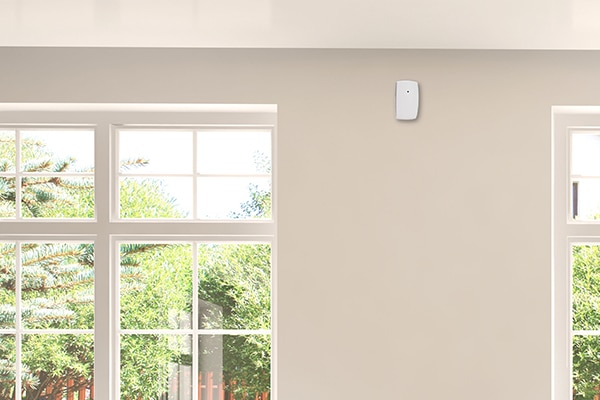
Should I Add Glass Breaks To My System?
Glass breaks can be an important addition to your home security system.
Glass breaks are sensors that detect the sound frequency and percussion of glass breaking and send the signal to your home security system to activate the alarm.
So why would you need glass break sensors installed as a part of your security system if you already have door and window sensors?
Door and window sensors are only effective if the door or window is opened. If an intruder instead decides to break the glass of the window to enter your home, the window sensor won’t trigger the alarm. A glass break sensor will trigger the alarm when it detects the sound and vibration of the glass breaking.
So the question remains:
Should I add glass breaks to my security system?
It’s important to remember that glass break sensors are used to enhance the security system you already have in place to make it even more effective.
We would suggest glass break sensors for any home that features:
- Large windows
- Sliding glass doors
- Rooms with many windows, such as sun rooms
- Exterior doors with windows or decorative window panes
- Homes with windows that are painted shut
While homes with large windows provide extra sunlight and views, they’re also a potential target for would-be criminals. Glass break sensors can help protect you in the event a criminal tries to enter your home.
Learn more about security system components here.

Kids Home Alone? Introduce Them to Home Security
The effectiveness of your home’s security system relies on those who use it – and that includes your children.
If your children are old enough to be left home alone, use these tips for introducing them to home security and personal safety.
1. Make Sure They Are Ready
It is one thing for your child to operate your home security system while you’re there, but it’s totally different from when you are away.
Making sure your child is mature enough to use the system on their own is an important question of consideration. Most kids are left at home alone starting around age 12 or 13, but that doesn’t mean your child ready to handle the responsibility.
Your children should be able to interact with the home security system (arming it and disarming it) and be able to take care of themselves while they are at home alone.
2. Have a Training Session
Schedule time to train your child on the home security system. Make it exciting and avoid drawing out the process for too long.
Let your child know the purpose of the home security system (protecting your home and family), but keep the conversation positive and do not frighten or intimidate them.
3. Test It Out
After you’ve covered the steps of arming/disarming your home system with your child, test it out. Over the course of a few days, have them take charge of arming and disarming the system while under your supervision to make sure they know how to operate it.
Children can remain at home safely with a home security system. However, not all security systems are created equal.
If you are thinking about leaving your kids at home alone, consider updating your current home alarm to one that is kid-friendly and simple to use. An EMC Security professional can help you pick out the right alarm system for the entire family.
Learn more about teaching your children to use your home security system by contacting EMC Security. Need to purchase a home security system? Call today at (770) 963-0305 or visit us online www.emcsecurity.com.
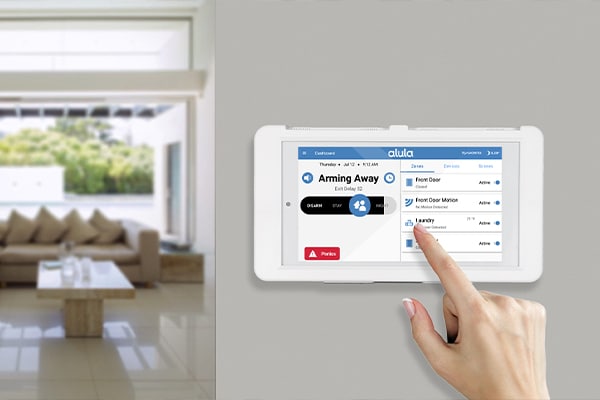
Is a DIY Security System Right For You?
We’ve all seen the commercial and heard the ads on the radio. DIY – Self Install – security systems are very popular and easier than ever to set up, in many cases without the need for a professional.
Are you up to the task? You might choose a DIY home security system installation over a professional if you:
- Want to save some money
- Are comfortable DIYing
- Want a system installed on your time frame
- Are aware of your home’s security vulnerabilities
- Want to move your system
- Plan to add to your system over time
Let’s dive deeper:
- You Want to Save Money
This is the number one reason why people opt for DIY. Advanced technology makes it easier than ever to set up a security system yourself – potentially saving you hundreds of dollars.
EMC Security goes a step further on our typical DIY systems. If you want one of our professional technicians to install it for you – we can do that for an extra fee. Being a local company gives us the flexibility to help you when you need us.
- You’re Comfortable DIY-ing
Handy with a screw driver? You’re already overqualified to install a basic home security system. EMC Security’s systems are pre-programmed for your home, pre-labeled for where the equipment is placed, and are set up without any tools needed. The peel-and-stick installation is quick and easy.
- You Want a System Installed on Your Time Frame
No appointments. No PTO needed. No waiting around. Once you receive your system, set it up whenever you want – in just minutes.
- You’re Aware of Your Home’s Security Vulnerabilities
If you are confident you can identify potential weaknesses and fortify them on your own, a DIY system makes sense for you. If not? Simply give us a call before making the purchase. An EMC Security representative will walk you through your home and customize the right system for you. Want to do everything online? Use our “Build Your System” tool to customize and purchase the perfect system for you home in seconds.
- You Want to Move Your System
Are you a renter? Do you move frequently? If you’re sure you want a security system but not sure you want to stay put, DIY home security systems are as easy to remove as they are to install. Since you put everything up with double-sided industrial tape, you can easily remove the equipment and take it with you. Another bonus – EMC Security can monitor you system anywhere in the US!
- You Plan to Add to Your System Over Time
With DIY installation, it’s easy to add equipment as you purchase it. Instead of having a pro come install every new sensor or camera you add to your home security system, you can take a few minutes to do it yourself. Consider adding security cameras and smart-home devices like lights and locks that work through the security app on your mobile device.

6 Things to Add to Your Moving Checklist
Summer is quickly approaching and some of you will be moving into your new home in a matter of weeks.
We know moving can be stressful, especially if you’re buying or selling your home. So every effort you can make to prepare for moving day will be worth it.
Here are 6 things to check off your list before you pull up to your new place
1. Change Your Address
The United States Postal Service offers a simple online process for changing your mailing address. There’s no need to wait in long lines or fill out pages of forms. You simply register on their website and they handle the rest. While you’re updating your address, remember to reach out to your insurance company, banks, credit card company and doctor’s office to let them know of your new mailing address.
2. Records Transfer
If your move isn’t local, you may need to transfer your family’s records. Your children’s school records should be transferred, as well as any doctor’s records reflecting their vaccination history. If you’re changing veterinarians, you should also request to transfer your pet’s records to the new clinic. Asking for copies of records or an automatic transfer before you move will make it easier to adjust when you arrive in your new neighborhood.
3. Moving Appliances
No matter how far you’re going, moving appliances requires a great deal of planning. In the weeks leading up to your move, try to use up all of the frozen food and perishable items from your freezer and refrigerator. And defrost your freezer at least 24 hours before your move. Remember, most moving companies do not disconnect or connect your appliances, so have them serviced within a few days of your move so they’ll be ready to go. Check back later this week for 3 more tips on making your move a smooth transition.
4. Car Registration
In Georgia, you have a 30-day grace period in which to register your vehicle but you must have a Georgia state license & acceptable insurance to do so.
5. Transfer Your Utilities
Make sure to transfer all of your utilities such as your gas, electricity, water, garbage, sewer, telephone, internet, cable, and your home security alarm services. To set up or transfer home security services, simply call us at 770.963.0305.
6. Pack Essentials
Nothing kills the buzz of your new home than not having toilet paper. Pack essentials like paper products, snacks, your toothbrush and phone chargers in a clearly labeled box. Keeping these close will make the transition to your new place much smoother.
A safe home is a happy home. Set up your home security system and/or a few security cameras today!

Safety Tips When Selling Your Home
Placing your home on the market shouldn’t result in increased risks to home security.
In fact, it’s in situations like this when you should amp up your protection even more. Why? Because when a real estate agent invites potential buyers into your home, their primary concern is selling your home, not with your valuables.
There have been many reports of homeowners being burglarized shortly after allowing prospective buyers inside. In these burglaries, small but expensive items such as jewelry and watches have been stolen.
If you are placing a house on the market now or in the future, EMC Security can help you protect your home in more ways than one. For instance, did you know that you can set your alarm keypad to grant access to certain people during specific times of the day? Want to monitor the activity inside your home from across town or while you’re at work? We’ve got you covered! Here are a few security tips to help you have a safer home selling experience:
1. Give Guest Code Authorization to Realtors
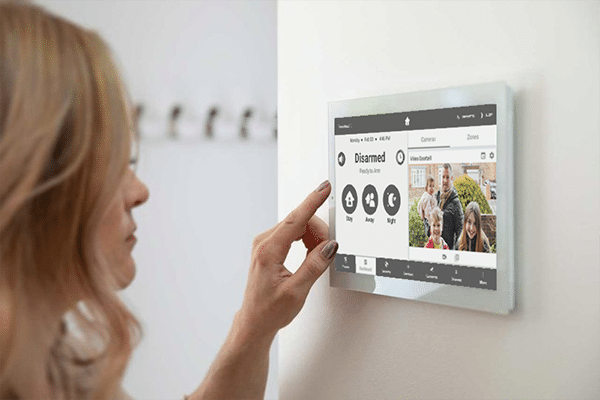
If you have an alarm system, avoid giving out your main security code (and if you don’t have a burglar alarm, get one!). Many modern systems allow you to program guest codes, some of which even make those codes usable only during certain times and on certain days. Requiring guests to use codes allow you to limit access to your home and can keep a log of when specific codes were used to enter your home. Assigning unique passwords to realtors also helps create an added sense of responsibility on the part of the realtor. Need help with this feature? Contact EMC Security at 770.963.0305 to check compatibility from one of our security experts.
2. Obligate Realtors to Re-arm Your System Before Leaving
In addition to ensuring certain that all doors are properly secured and locked, make it a requirement that realtors reactivate your system prior to leaving your home. It’s also a good idea to document your request with the broker by giving them written instructions pertaining to your request. Taking such strong precautions could mean the difference between your home being protected as opposed to being burglarized.
3. Use Indoor Home Surveillance Cameras
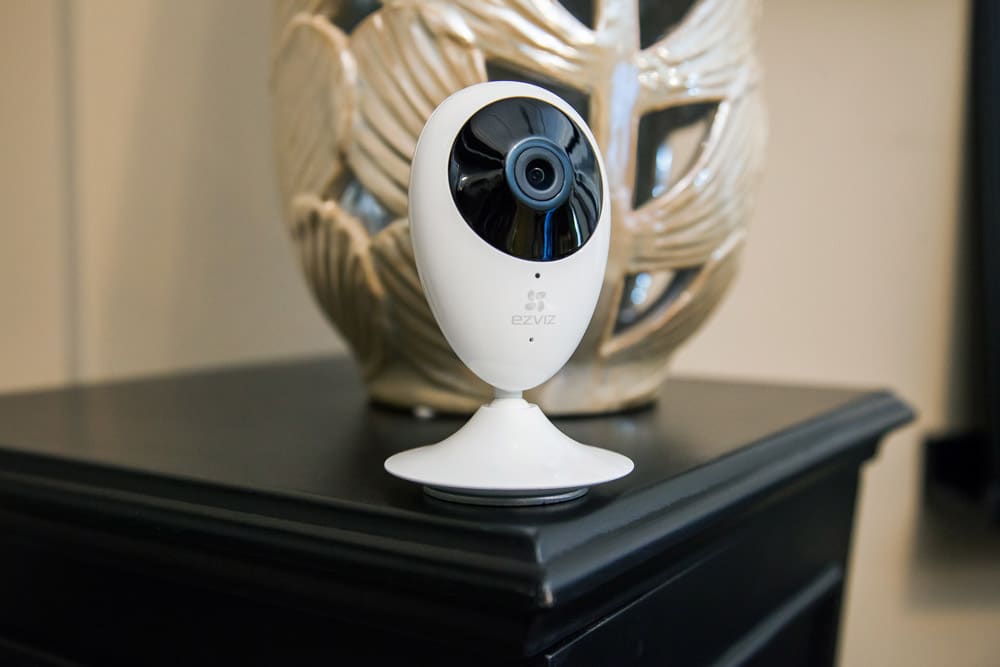
Whether hidden or placed in plain sight, surveillance cameras are a deterrent to theft and can be invaluable to protecting your property. In the worst-case scenario, they can provide evidence to police in the event of a crime. Some security cameras will even allow you to remotely monitor your home while away.
4. Check Your Windows

Even if you’ve instructed your realtor to check/lock your windows after each visit, it’s still recommended that you double check to ensure that all entry points to your home have been secured upon your return. Crafty burglars will sometimes unlock windows or doors with plans of returning later to execute their plan for theft. Also, a realtor may simply forget to secure one of these, so it is always a good idea to manually check yourself as soon as possible.
5. Remove or Secure Valuables

Don’t neglect to secure your valuables, such as money or jewelry when listing your home for sale. It’s not enough to simply place jewelry in a designated box or video games in a cabinet, as strangers will be allowed to roam throughout your home and may stumble upon these areas. If you don’t already own one, consider a wall safe or even removing them during open house visits.
Need a security system? Give EMC Security a call at 770.963.0305 or check out our website on how to customize the best home security system for your needs today.
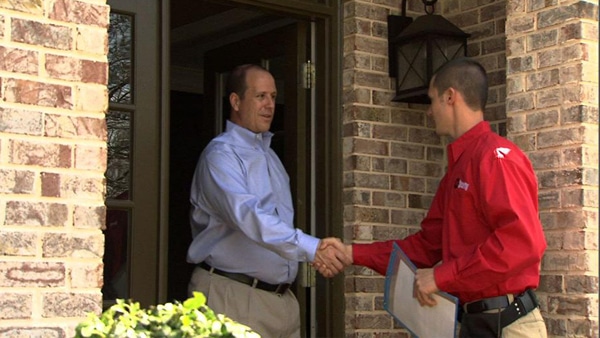
Can I Switch to EMC Security?
More homes than ever before have pre-installed security systems, or the home is pre-wired and ready for security equipment to be installed.
This begs the question that is often confusing to consumers, “Do I have to use the company that installed the equipment to monitor it?”
No, you don’t.
We’ve spoken with many customers that have switched to EMC Security from another provider. Some of them thought they were stuck with that company because they had their equipment in their home.
But EMC Security can monitor most existing home security systems. This is good news if you’re happy with the existing security system in your home but dissatisfied with your current monitoring service, or especially if you’re moving into a home with a pre-installed system.
What is Monitoring?
When your alarm is activated (by a sensor striking on a door or window), an alarm is sent to the central monitoring station for immediate action. This includes contacting you at pre-determined phone numbers (EMC Security’s alarm response is less than 14 seconds on average) and relaying your address and the type of emergency to police, fire, or medical authorities.
Some systems are only supported by the company that installed them. These systems are called proprietary systems. A well-known example of this type of system is Simplisafe. Their systems are affordable but if you aren’t happy with the service, you will need to throw it in the trash. No other company can monitor their equipment. EMC Security only offers non-proprietary systems. We don’t want our customers to feel stuck with us – that’s why we don’t require a contract either, by the way.
If you’re moving into a home with an existing security system, the control panel should give you a make and model number to assist with your research. This information is all EMC Security needs to determine if we can monitor your system.
Switching to EMC Security is simple and affordable.
Schedule your activation on our website now.

Best City to Live in Gwinnett County
There are many reasons to choose Gwinnett County, GA as your home.
- Award winning schools
- Diverse culture
- Local sports and arenas
- Robust economy
- 47 parks and 10,000 acres of park land.
So where is the best place in Gwinnett to call home?
#1 Berkely Lake
With a population of almost 2,000, Berkeley Lake is ranked as the best place to live in Gwinnett County. There are a lot of restaurants, coffee shops, and parks. The public schools in Berkeley Lake are highly rated.
- Median Income – $131,300
- Median Home Value – $403,200
- 96% of population owns a home
- Ranked in top 6 in Georgia
#2 Suwanee
With a population of almost 19,200, Suwanee has long been touted as one of the best places to live in the U.S. The diverse families and young professionals that live in Suwanee enjoy the many acres of greenspace and parks thoughout the area.
Suwanee is home to EMC Security! Residents all around the metro Atlanta area and Gwinnett County enjoy local security service and local support from a hometown company.
- Median Household Income – $86,980
- Median Home Value – $292,900
- 76% of population owns a home
- Ranked in top 6 in Georgia
#3 Peachtree Corners
Gwinnett County’s largest city with a population of over 42,400 – with many highly-rated public and private schools abound. A little more than half the residents own their own home with families and young professionals enjoying the easy proximity to highways to commute to Atlanta.
- Median Household Income – $67,950
- Median Home Value – $325,000
- 53% of population owns a home
- Ranked in top 10 in Georgia
No matter where you live, even in one of the safest counties in Georgia, EMC Security can help simplify your life.
- Protect your home and family from unwanted intruders with a security system.
- Add fire protection and monitor for smoke and heat – for no extra monthly cost.
- Smarten up your home with auto-lights, locks, and thermostats. You’ll be amazed at how easy it is to control your home functions through one app, possible saving on power bills as well.
- Add the convenience and peace of mind that security cameras provide. Keep an eye on what goes on around your house and yard, your pets, aging parents, kids home alone and packages being delivered.
Source: https://www.niche.com/about/methodology/best-places-to-live/

What if your security alarm goes off?
When your home alarm goes off, it can be a frightening and sometimes confusing experience.
Your first instinct might be to immediately disable the alarm siren. But, if you do this, how do you know you didn’t just disable an alarm for a burglar that might have just broken in? The fact is, most of us are not sure what we’d do in this case. The key is to be prepared.
Below are 5 things you should do if your home security alarm goes off:
- Stay Calm
It is natural for us to panic in emergency situations. As a result, we tend to react rather than think. However, when your home alarm goes off, you should take a moment to calm your senses before doing something rash. It’s easier to think about your options when you’re calm.
A home security system is designed with an extremely loud alarm siren to scare off an intruder. And depending on your system and neighborhood, it could also alert a neighbor. Keeping this in mind could help your anxiety level.
- Verify It’s Not a False Alarm
The next thing to do is to verify whether the alarm is false. Read any notifications or messages appearing on the keypad display (if it’s nearby) and then investigate, however don’t put yourself in danger to do so. If you suspect that there is an actual threat in the house, find a safe place to wait for the authorities.
- Keep Your Phone Nearby
This is a must, for a couple of reasons. First, your home security company is instantly notified when the alarm is triggered and will immediately be contacting you to assess the situation. They will also notify the authorities.
Second, you can call someone outside of your home in order to get help. Contact a friend or relative as soon as you get the chance and let them know what’s going on.
- Know Your Password
When your home security company calls your home, they will ask for your password. If you know it’s a false alarm and don’t want to notify the police, you must have your password.
If you don’t know your password, the authorities will be dispatched. This is because the security company has no way of knowing that you are who you say you are, or if you might be speaking under duress.
- Have a Plan
An effective plan can help you remain calm and could potentially save lives. The best plan is to designate a safe area to wait for authorities to clear your home of danger. The safe area (or room) should ideally be as far away as possible from any potential break-in areas (such as windows and doors). It’s also a good idea to have a dead bolt installed on the door.
Although security systems can help make your home and family more secure and safe, you will still need to practice vigilance and awareness in case of an emergency. Never put yourself or your family members in danger. The best option is to let your security system do what it is designed to do – and that’s to help you.
Don’t have a home security system? Contact EMC Security to protect your home and family today.

Are Your Cameras Secure?
Contrary to what some may think, EMC Security cameras are not a part of your monitored security system. The video is not accessible by EMC Security employees or anyone other than you and those you assign access with a password. Please keep your password in a safe location and change it frequently.
Below are ways to ensure your cameras are safe from hackers:
1. Purchase cameras from a company you trust. EMC Security offers camera technology that employs multiple security techniques at different layers of our network(s) and ecosystem to maintain the integrity of services, such as:
-
- The devices do not have an external addressable/reachable interface from the Internet and are accessible only via a private network that is extended into and through a cellular carrier.
- All information between the communicators to and through the service platform is encrypted using either 128 or 256-bit encryption keys.
- Data traversing the cellular network is segregated (private) within the carrier traffic group and is routed via VPN connection to the network and service platform.
- The devices attach to a mesh network where traffic is decrypted, analyzed, and routed accordingly.
- We employ both industry standard and proprietary mechanisms (firewalls, proxies, port redirects, secure ports and sockets, etc.) to isolate traffic and/or data from public networks at the physical and logical network boundaries and demarcations.
- Additionally, EMC Security offers personalized service with professionally trained security consultants and technicians that coach and counsel customers through the sales and installation process. This will help them prevent hacking.
2. Change your password. In many cases, hacks are indeed a result of poor management on the part of the user. One of the biggest things you can do to prevent home security camera hacks is to educate yourself about malware, password security, and Wi-Fi network security. And change your password. Frequently.
3. Instead of giving your Wi-Fi password to friends and guests in your home, create a “guest” network. This way, no one but you will have access to your computers or personal data. Many Wi-Fi routers allow you to configure a guest access for this purpose.
4. Never use the same password across different accounts. Many of us are guilty of this because of the convenience. If your security camera password the same as your email, Facebook, or online banking password, you’re greatly increasing your risk of a security breach. For your security camera (and all of your accounts), use a password that’s different from the one you use for any other account. View more tips.
-
- Use 12 characters minimum.
- Avoid any personal info in your password, like birthdays, kids’ names, anniversaries, etc.
- Your password should be completely random.
- Include upper and lower case letters, numbers, and symbols.
5. If available, always use two-factor or a biometric authentication to secure your account. When two of these factors are required for authentication, the security becomes much more entrenched, making it more difficult to hack. EMC Security’s cameras use biometric authentication for viewing video on the mobile app.
6. Consider using a secure password manager such as LastPass (offers free credit monitoring, two-factor authentication, a password generator, and a secure master password). These programs use a digital vault that lock up your passwords and other login credentials. The information is also stored on remote servers and encrypted on a local machine so there’s no way for a middle-man to compromise your credentials.
7. Double-check who has access to your cameras. Your video app has a location where you can check all users on your account. If you have questions, give us a call.
-
